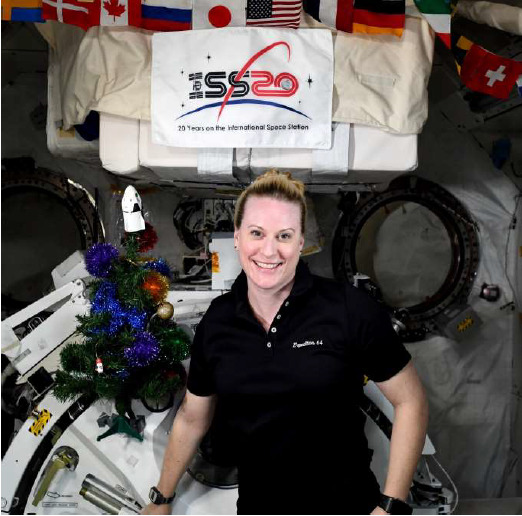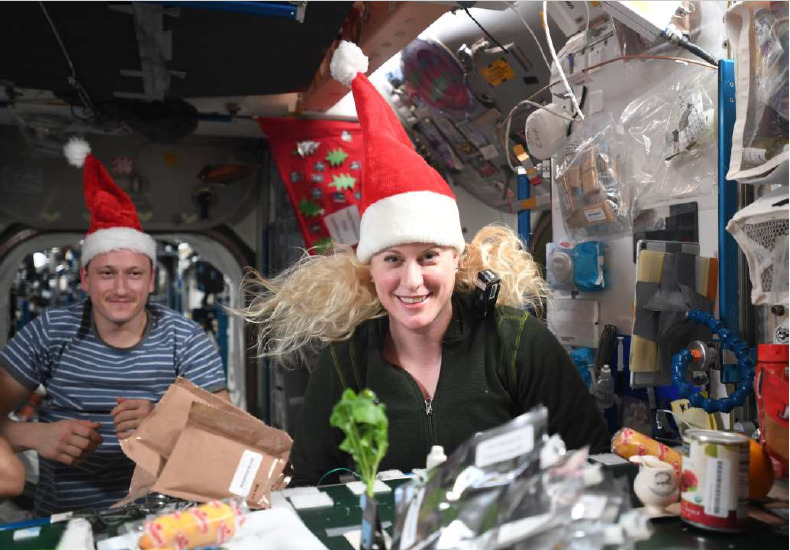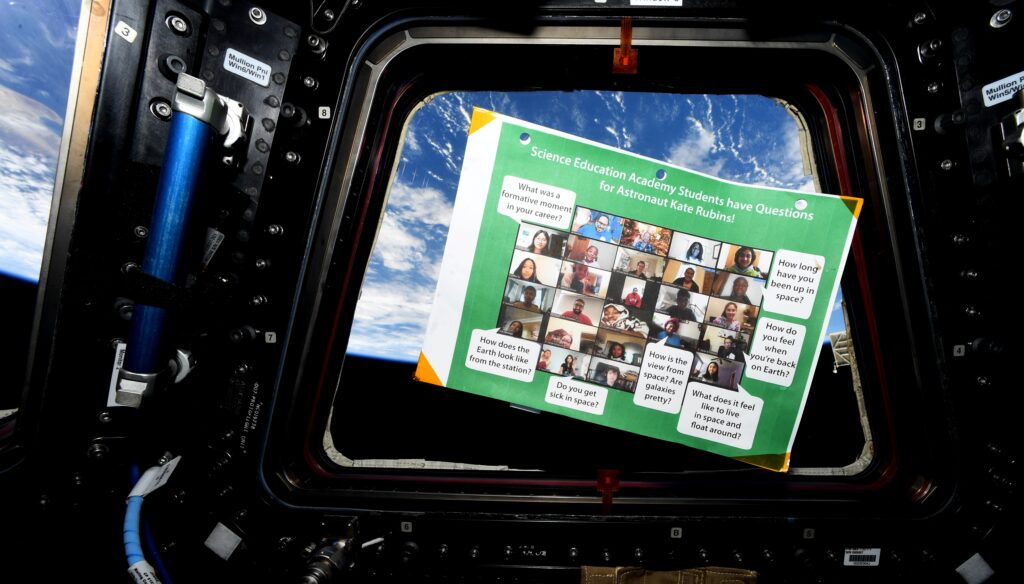01 Jan Sending Questions About Space into Space
Students from Science Education Academy’s virtual program had a unique opportunity to send their questions directly to NASA astronaut Dr. Kathleen “Kate” Rubins who was onboard the International Space Station.

What was a formative moment in your career?
“One of the most formative moments for me was getting involved in a High School group that worked with our County Public Health department on HIV prevention. We learned about the molecular biology of HIV, heard from doctors, patients and scientists working on understanding and treating HIV. This is when I decided I was really interested in viruses and molecular biology.”
How long have you been up in space?
“I had to count! I launched October 14th, 2020 and so today (Christmas Eve 2020) I have been here 71 days. I will stay a total of about 180 days on this mission. My last mission in 2016 was 115 days total. I am looking forward to coming back to Earth in 2021, I feel like that might be a better year.”

How does the Earth look like from the space station?
“Earth is amazingly beautiful from the station. One of the things that surprised me on my first launch to space was just how immense the planet is – it looks enormous from ISS, but then when you look out into the rest of the universe you can see how small it is. It is also very very bright. All of the reflected sunlight makes it glow incredibly bright. So it looks like this giant blue glowing sphere. It’s one of the most beautiful things I have ever seen.”
Do you get sick in space?
“We go into quarantine or two full weeks before we launch. And every crewmember and everyone else in quarantine was tested for COVID multiple times before and during quarantine. Then, once we are on the space station, we are isolated from the rest of humanity and all life on earth. Which means that viruses that transmit from people and animals can’t transmit to us. So we don’t get contagious illnesses up here. Our food is irradiated or sterilized and sublimated so we don’t see food-borne illnesses either. We do get a little bit of space motion sickness the first few days; it’s like mild seasickness. And we also can have endogenous virus reactivation, so viruses that we carry with us such as varicella zoster virus that causes chickenpox and shingles, have reactivated in astronauts before. We are currently studying the human virome in space using large scale sequencing techniques to see if other viruses reactivate. We are a little immunocompromised up here, but not majorly. So most of the time we feel very healthy and don’t get sick.”
How is the view from space? Are galaxies pretty?
“The view is amazing. We have a module with seven windows in it in a “bump-out” shape called the Cupola, so we can put our head (or even our whole body) in there and see all around us 360 degrees. It is different from skywatching on Earth, because we are a little bit away from the planet, so we see the stars to our left and right and everywhere around us, not just looking up. We can see the Milky Way as a band that wraps all around us, particularly when the Earth is in orbital night and the moon is blocked by the Earth or doesn’t have a lot of illumination.”
What does it feel like to live in space and move around?
“It feels really weird at first. Because you can’t walk anywhere, you have to fly to get from place to place. So we spend a couple weeks learning how to fly. We push off a handrail with our feet or hands and then fly ourselves like Superman. It is not that easy! We all bump our heads a lot and slam into things if we are not paying attention to our speed and direction of motion. After about a month it becomes second nature, just like walking. We all get used to floating and flying, and the idea of walking to get somewhere sounds really strange to me right now! It is amazing to me how adaptable humans are neurologically. For example, I never learned how to fly growing up and now I do it every day. How do you think humans will get around best when we go to the moon again, which has ⅙ of Earth’s gravity, or Mars, which has ⅓ of Earth’s gravity? I think they will get good at giant bounding leaps and hopping!”
How do you feel when you’re back on Earth?
“It is a nice feeling to be back on the planet, because we know we are safe, back in Earth’s atmosphere, not living on the edge of space in an extreme environment with not a lot of air and water, and things that could go wrong at any time on our spacecraft. And it is AMAZING to feel the weather, wind, rain, smell a fresh breeze, see trees and flowers. However we are normally really not happy with gravity the first few days. I have never noticed gravity before coming back last time. They asked me what I felt like when I was in the landing seat after being taken out of the capsule, and I said I felt like I was stuck to the planet with magnets! We are used to everything floating. It seems very weird to be anchored to Earth by this force and not able to push away with your feet and fly like we are used to here in the space station.”

Questions and responses were slightly edited for clarity and grammar.

Sorry, the comment form is closed at this time.